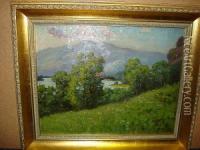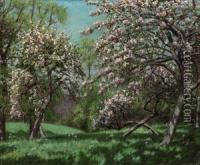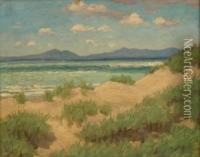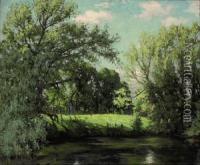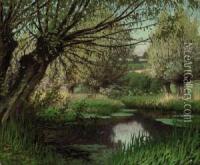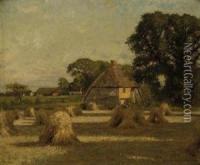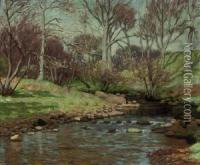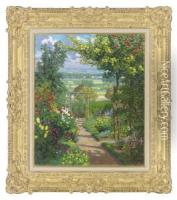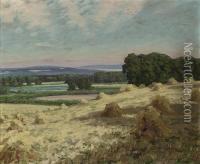Rudolph Onslow-Ford Paintings
Gordon Onslow Ford was a British-born painter who became an influential figure in the surrealist movement and later developed into an independent visionary artist. Born on December 26, 1902, in Wendover, England, into a family with a military background, Onslow Ford initially pursued a career in the navy, following his family's tradition. However, his deep interest in painting led him to abandon his naval career and dedicate himself entirely to art. He studied painting at the Royal Academy of Arts in London but found the academic approach restrictive. Seeking creative freedom, he moved to Paris in the 1930s, where he became involved with the Surrealist group, an association that significantly shaped his early artistic development.
In Paris, Onslow Ford met key figures of the Surrealist movement, including André Breton, the group's founder, and artists such as Salvador Dalí, Max Ernst, and Yves Tanguy. His work from this period reflects the surrealist fascination with the unconscious mind, dream imagery, and automatic drawing techniques. However, Onslow Ford's art evolved beyond traditional Surrealism as he sought to explore the inner workings of the mind and the universe through his painting, leading him to develop a unique visual language characterized by symbolic forms, cosmic motifs, and an exploration of the metaphysical.
During World War II, Onslow Ford moved to Mexico, a relocation that marked a new phase in his artistic journey. In Mexico, he was exposed to pre-Columbian mythology and symbolism, which further enriched his work. In the late 1940s, he moved to the United States, settling in the San Francisco Bay Area, where he became a key figure in the burgeoning abstract expressionist scene. His influence extended to younger artists, and he played a crucial role in the development of the Bay Area's vibrant art community.
Onslow Ford continued to evolve as an artist throughout his career, delving into philosophical and spiritual themes. His later works are characterized by a more abstract and lyrical approach, with an emphasis on color, light, and the exploration of consciousness. Gordon Onslow Ford passed away on November 9, 1989, leaving behind a legacy as a pioneering artist whose work bridged the realms of Surrealism, abstract expressionism, and beyond. His contributions to modern art are recognized in collections and exhibitions around the world, reflecting his enduring impact on the field.
